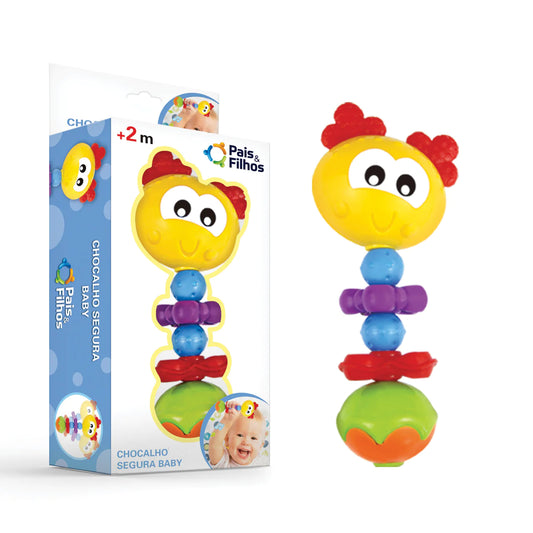Collection: BABY
The Importance of Baby Toys in Early Development
The early stages of a baby's life are filled with rapid growth and development, and the role of toys in this process is both significant and multifaceted. Baby toys are not just objects for entertainment; they are essential tools that contribute to a child's cognitive, motor, sensory, and social development. Here's why baby toys hold such importance:
-
Stimulation and Exploration: Baby toys provide a world of new experiences for infants. Bright colors, contrasting patterns, various textures, and intriguing shapes stimulate their senses and encourage exploration. As babies touch, grasp, and manipulate toys, they develop a deeper understanding of their environment and refine their motor skills.
-
Sensory Development: Many baby toys are designed to engage multiple senses simultaneously. Whether it's feeling the different textures of a soft toy, hearing the sound of a rattle, or seeing their reflection in a mirror, these sensory experiences help babies make connections between what they perceive and the world around them.
-
Motor Skill Development: Interacting with toys helps babies improve their fine and gross motor skills. Grasping, shaking, and manipulating toys contribute to the development of hand-eye coordination and muscle strength. Toys that encourage crawling, reaching, and even standing provide valuable opportunities for physical development.
-
Cognitive Growth: Baby toys play a crucial role in cognitive development. Toys with various features, such as buttons to push, levers to pull, or pieces to fit together, help babies learn about cause and effect. They begin to understand that their actions can lead to specific outcomes, which lays the foundation for problem-solving skills later in life.
-
Language and Communication: Even before babies can speak, toys can aid in the development of language and communication skills. Interactive toys that produce sounds, songs, or phrases expose babies to different sounds and words. This exposure can help them recognize and imitate sounds, which is an important precursor to language development.
-
Emotional Comfort: Baby toys often become cherished companions that offer comfort and security. Soft plush toys and comfort blankets, for example, provide a sense of familiarity and emotional support, helping babies feel safe and soothed.
-
Social Interaction: Some toys are designed for interactive play, which helps babies develop social skills. Playing with caregivers or other children using toys fosters bonding and teaches basic concepts of sharing, turn-taking, and cooperation.
-
Creativity and Imagination: As babies grow, certain toys encourage imaginative play. Dolls, stuffed animals, and open-ended toys like blocks provide opportunities for babies to engage in pretend play and start forming their creativity.
-
Parent-Child Bonding: Playing with toys creates special bonding moments between babies and their caregivers. Engaging in playtime activities fosters emotional connection and helps caregivers understand and respond to their baby's cues and preferences.
















